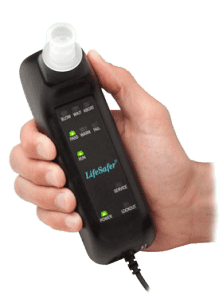 Each state in the U.S. has some sort of ignition interlock law for convicted drunk drivers. These consequences of an alcohol-related criminal act, such as a DUI, DWI or OVI are meant to reduce the chance further incidents of drunk driving, and have been shown to be effective deterrents when used properly. Ignition interlock technology has advanced over the years since the first breathalyzer was introduced in the late 1800s, and it is perhaps the strongest weapon we have against drunk driving accidents, injuries and deaths today.
Each state in the U.S. has some sort of ignition interlock law for convicted drunk drivers. These consequences of an alcohol-related criminal act, such as a DUI, DWI or OVI are meant to reduce the chance further incidents of drunk driving, and have been shown to be effective deterrents when used properly. Ignition interlock technology has advanced over the years since the first breathalyzer was introduced in the late 1800s, and it is perhaps the strongest weapon we have against drunk driving accidents, injuries and deaths today.
Ignition interlock technology is based upon the detection of alcohol in the blood stream, or the blood alcohol concentration (BAC) of a person. Through the years, the legal BAC limit has been set at .08, a number that many consider too high, considering the impairment that comes even at that level. Ignition interlock technology is able to take a breath sample and determine the BAC level of the person breathing into the unit in order allow the safe operation of a vehicle. If a person’s BAC registers over the pre-set limit (which is typically well below the legal .08 BAC limit), the vehicle will not start. During a “rolling retest,” the driver must provide a breath sample that is also under the pre-set limit, or the vehicle will begin to sound its own alarm until stopped.
Since DUI offenders with an ignition interlock requirement have been successful in circumventing the devices, the technology of these devices has increased in its accuracy, reporting methods and assurance of the person’s adherence to the guidelines of use. Alcohol-specific fuel cells in the device are able to measure the BAC precisely and can even transmit test results almost instantly through wireless components. Today’s ignition interlock technology also includes a video camera component that ensures the person with the IID requirement is the person blowing into the device.
The installation and removal of an IID is handled by trained professionals who understand the need for the devices, while respecting the property of the vehicle owner. If any issues arise with the unit, a trusted ignition interlock service provider has the skills and knowledge to ensure the duration of an IID sentence is met with as little hassle and frustration as possible, including any maintenance and reporting issues as they arise.

Leave a Reply
You must be logged in to post a comment.